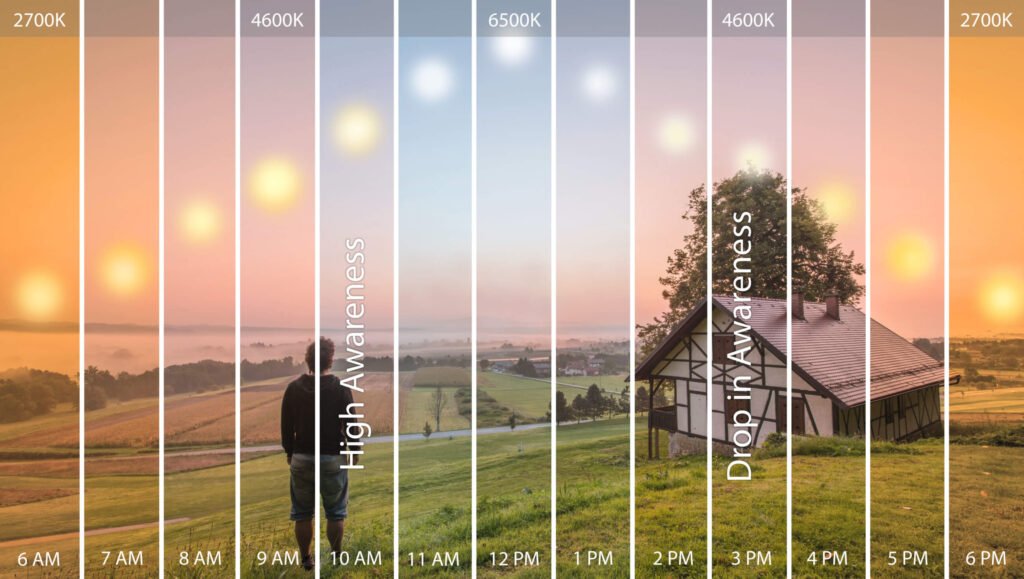In a world that often moves at a relentless pace, filled with technological advancements and urban landscapes, it’s easy to overlook the simple yet profound impact that nature can have on our well-being. One such natural element that holds the power to influence our mental health positively is sunlight. As we delve into the intricate relationship between sunlight and mental well-being, we uncover a myriad of benefits that extend far beyond the warmth on our skin.
Sunlight and Vitamin D:

Sunlight is a natural source of vitamin D, a crucial nutrient that plays a vital role in maintaining optimal mental health. Exposure to sunlight stimulates the skin to produce vitamin D, which is linked to the production of serotonin, often referred to as the “feel-good” neurotransmitter. Serotonin levels are closely associated with mood regulation, and a deficiency has been linked to conditions like seasonal affective disorder (SAD) and depression.
Regulation of Circadian Rhythms:

The human body operates on a delicate internal clock known as circadian rhythms, which regulate various physiological and behavioral processes, including sleep-wake cycles. Exposure to natural sunlight helps synchronize these rhythms, promoting a healthy sleep pattern and overall mental stability. Individuals with disrupted circadian rhythms may experience sleep disorders, mood swings, and difficulties in concentration.
Mood Enhancement:

Sunlight has a direct and immediate impact on our mood. The exposure to sunlight triggers the release of endorphins, the body’s natural mood enhancers. A sunny day can lift spirits, reduce feelings of stress and anxiety, and contribute to an overall sense of well-being. Nature’s antidepressant, sunlight provides a natural remedy for those combating the blues.
Improved Cognitive Function:

Research suggests that exposure to natural light positively affects cognitive function and performance. Sunlight stimulates the production of dopamine, a neurotransmitter associated with attention and motivation. In workplaces and educational settings, optimizing exposure to natural light may contribute to increased productivity, enhanced focus, and improved learning outcomes.
Sunlight and Seasonal Affective Disorder (SAD):

Seasonal Affective Disorder is a type of depression that occurs at a specific time of year, usually during the fall and winter when daylight hours are shorter. Sunlight exposure is a key component in managing and preventing SAD. Light therapy, which involves exposure to a bright light that mimics natural sunlight, is a common and effective treatment for individuals affected by this condition.
Numerous research studies have explored the relationship between sunlight exposure and mood enhancement. Here are some key studies that shed light on the positive effects of sunlight on mood:
1. Study Title: “Effect of sunlight exposure on cognitive function among depressed and non-depressed participants: a REGARDS cross-sectional study.”
- Published in: Environmental Health, 2016
- Summary: This study investigated the association between sunlight exposure and cognitive function. It found that increased sunlight exposure was linked to better cognitive performance, especially among individuals with depression.
2. Study Title: “Sunlight, Mood, Cortisol, and Health: A Repeated Measures Study.”
- Published in: Journal of Affective Disorders, 2016
- Summary: Conducted over 13 days, this study explored the relationship between sunlight exposure and various health parameters, including mood and cortisol levels. The findings suggested that increased sunlight exposure was associated with better mood and lower cortisol levels.
3. Study Title: “Bright light exposure and major depressive and bipolar disorder: A systematic review and meta-analysis of randomized controlled trials.”
- Published in: Psychological Medicine, 2019
- Summary: This meta-analysis examined the impact of bright light exposure (which includes sunlight exposure) on individuals with major depressive and bipolar disorders. The results indicated a significant improvement in mood among those exposed to bright light compared to control groups.
4. Study Title: “Effects of Sunlight Exposure on Sleep, Cognition, and Well-being in Dementia Patients: A Randomized Controlled Trial.”
- Published in: Journal of Alzheimer’s Disease, 2018
- Summary: Focused on dementia patients, this randomized controlled trial investigated the effects of sunlight exposure on sleep, cognition, and overall well-being. The study found that increased exposure to natural light had positive effects on sleep and mood in dementia patients.
5. Study Title: “Light exposure and physical activity in community-dwelling older adults.”
- Published in: Journal of Sleep Research, 2015
- Summary: This study explored the relationship between light exposure, physical activity, and mood in older adults. It found that exposure to natural light was associated with higher physical activity levels and better mood, emphasizing the interconnectedness of light exposure, activity, and well-being.
These studies collectively highlight the positive impact of sunlight exposure on mood and mental well-being. While more research is needed to fully understand the mechanisms at play, these findings support the idea that incorporating sunlight into daily routines can have significant benefits for mental health.
Practical Tips for Harnessing Sunlight’s Benefits:
- Morning Exposure: Aim for exposure to sunlight in the morning to support healthy circadian rhythms and enhance mood throughout the day.
- Outdoor Activities: Incorporate outdoor activities into your routine, such as walking, jogging, or gardening, to maximize sunlight exposure.
- Balanced Approach: While sunlight is beneficial, it’s crucial to maintain a balanced approach and avoid excessive exposure, taking necessary precautions like using sunscreen to protect your skin.
- Lunchtime Breaks: If possible, take breaks outdoors during lunchtime. Find a sunny spot to enjoy your meal or take a short stroll. This midday exposure to sunlight can provide an energy boost, enhance concentration, and combat the mid-afternoon slump.
- Workspace Optimization: Arrange your workspace to maximize natural light exposure. Position your desk near windows and open curtains or blinds to let sunlight in. If you work in a setting with limited access to natural light, consider taking short breaks outside periodically.
- Mindful Sunbathing: Engage in mindful sunbathing during appropriate times, especially in the early morning or late afternoon to avoid harsh sunlight. Find a comfortable spot, relax, and soak in the sun. Just a few minutes can make a significant difference.
- Gardening Therapy: If you have access to a garden or green space, consider spending time cultivating plants. Gardening is not only a therapeutic activity, but it also ensures extended exposure to sunlight. Just be sure to protect your skin with sunscreen.
- Digital Detox Outdoors: Break free from screen time and take your digital detox outdoors. Whether it’s reading a book, sketching, or practicing mindfulness, spending tech-free time in nature can rejuvenate your mind and body.
- Sunlight and Sleep: Establish a healthy sleep-wake cycle by regulating your exposure to sunlight, especially in the morning. This can help improve the quality of your sleep and contribute to overall mental well-being.
- Plan Outdoor Social Activities: Instead of indoor gatherings, plan social activities that take advantage of outdoor spaces. Picnics, outdoor games, or simply meeting friends at a park provide opportunities for sunlight exposure and social connection.
- Be Sun Smart: While enjoying the benefits of sunlight, practice sun safety. Use sunscreen to protect your skin, especially during peak hours. Sunglasses and hats can also help shield your eyes and face from excessive sun exposure.
In the hustle and bustle of modern life, reconnecting with the natural world can be a transformative step towards improved mental health. Sunlight, with its array of benefits ranging from mood enhancement to cognitive function improvement, stands as a readily available and often underestimated resource. As we strive for holistic well-being, let’s not overlook the profound impact that the warmth of the sun can bring to our mental and emotional lives. So, step outside, bask in the light, and let nature’s remedy work its magic on your mind.
Incorporating these practical tips into your routine can help you harness the positive effects of sunlight on your mental health. Remember, it’s about creating a balance that suits your lifestyle and allows you to embrace the natural energy that sunlight provides.
References: Holick, M. F. (2007). Vitamin D deficiency. New England Journal of Medicine, 357(3), 266-281. Anglin, R. E., Samaan, Z., Walter, S. D., & McDonald, S. D. (2013). Vitamin D deficiency and depression in adults: systematic review and meta-analysis. The British Journal of Psychiatry, 202(2), 100-107. Bedrosian, T. A., & Nelson, R. J. (2013). Timing of light exposure affects mood and brain circuits. Translational Psychiatry, 3(7), e315. Terman, M., & Terman, J. S. (2005). Light therapy for seasonal and nonseasonal depression: efficacy, protocol, safety, and side effects. CNS spectrums, 10(8), 647-663. Boubekri, M., Cheung, I. N., Reid, K. J., Wang, C. H., & Zee, P. C. (2014). Impact of windows and daylight exposure on overall health and sleep quality of office workers: a case-control pilot study. Journal of Clinical Sleep Medicine, 10(6), 603-611. Golden, R. N., Gaynes, B. N., Ekstrom, R. D., Hamer, R. M., Jacobsen, F. M., Suppes, T., ... & Nemeroff, C. B. (2005). The efficacy of light therapy in the treatment of mood disorders: a review and meta-analysis of the evidence. American Journal of Psychiatry, 162(4), 656-662.


